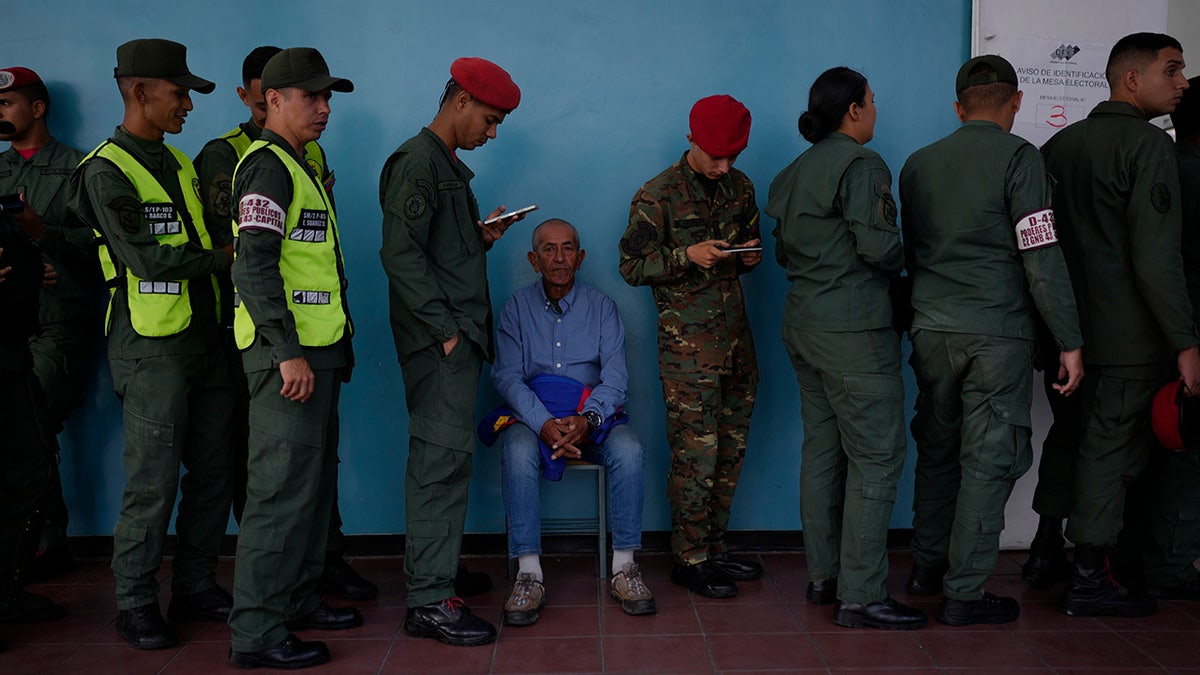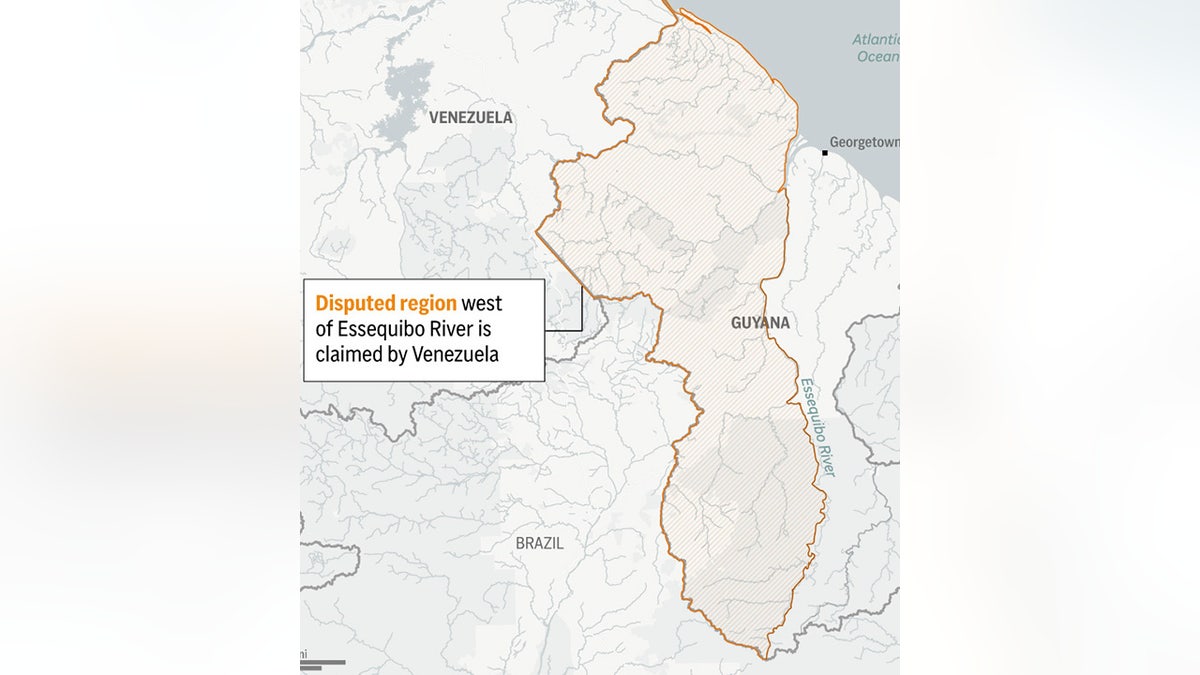Venezuela approves referendum to take over neighboring oil-rich Essequibo region controlled by Guyana
Venezuela approved a referendum to take over the neighboring oil-rich Essequibo region controlled by the sovereign nation of Guyana after a vote Sunday, according to election officials.
The government of President Nicolás Maduro put forward a referendum to claim sovereignty over the oil- and mineral-rich area of neighboring Guyana it argues was stolen when the border was drawn more than a century ago. It remains unclear how Maduro will enforce the results of the vote.
Guyana considers the referendum a step toward annexation, and the vote has its residents on edge.
The National Electoral Council claimed to have counted more than 10.5 million votes even though few voters could be seen at polling sites throughout the voting period for the five-question referendum. The council, however, did not explain whether the number of votes was equivalent to each voter or if it was the sum of each individual answer.
REPUBLICAN WARNS CHINA, RUSSIA, IRAN ‘TRYING TO INVADE’ WESTERN HEMISPHERE 200 YEARS SINCE MONROE DOCTRINE
Venezuelan voters were asked whether they support establishing a state in the Essequibo territory, granting citizenship to current and future area residents and rejecting the jurisdiction of the United Nations’ top court in settling the disagreement between the South American countries.
Guyana, the only English-speaking country in South America, maintains that an initial accord by arbitrators from Britain, Russia and the United States – decided in 1899 when Guyana was still a British colony – establishing Essequibo’s borders with Venezuela remains in effect.
An area of 61,600 square miles, Essequibo represents two-thirds of the land controlled by Guyana and about a sixth of its population. It also borders Brazil, whose Defense Ministry recently said in a statement that it has “intensified its defense actions” and boosted its military presence in the region as a result of the dispute.
Essequibo is larger than Greece and rich in minerals. It also gives access to an area of the Atlantic where energy giant ExxonMobil discovered oil in commercial quantities in 2015, drawing the attention of Maduro’s government.
“It has been a total success for our country, for our democracy,” Maduro told supporters gathered in Caracas, the capital, after referendum results were announced.

VENEZUELA’S GOVERNMENT AND OPPOSITION AGREE ON APPEAL PROCESS FOR CANDIDATES BANNED FROM RUNNING
He claimed the referendum had a “very important level of participation.”
Yet long lines typical of electoral events did not form outside voting centers in Caracas throughout Sunday, even after the country’s top electoral authority, Elvis Amoroso, announced the 12-hour voting period would be extended by two hours, according to the Associated Press.

If the participation figure offered by Amoroso refers to voters, it would mean more people voted in the referendum than they did for Hugo Chávez, Maduro’s mentor and predecessor, when he was re-elected in the 2012 presidential contest. But if it is equivalent to each individual answer marked by voters, turnout could drop to as low as 2.1 million voters.
The International Court of Justice on Friday ordered Venezuela not to take any action that would alter Guyana’s control over Essequibo, but the judges did not specifically ban officials from carrying out Sunday’s five-question referendum. Guyana had asked the court to order Venezuela to halt parts of the vote.
CLICK TO GET THE FOX NEWS APP
Although the practical and legal implications of the referendum remain unclear, in comments explaining Friday’s verdict international court president Joan E. Donoghue said statements from Venezuela’s government suggest it “is taking steps with a view toward acquiring control over and administering the territory in dispute.” “Furthermore, Venezuelan military officials announced that Venezuela is taking concrete measures to build an airstrip to serve as a ‘logistical support point for the integral development of the Essequibo,’” she said.
The Associated Press contributed to this report.
Read the full article Here


